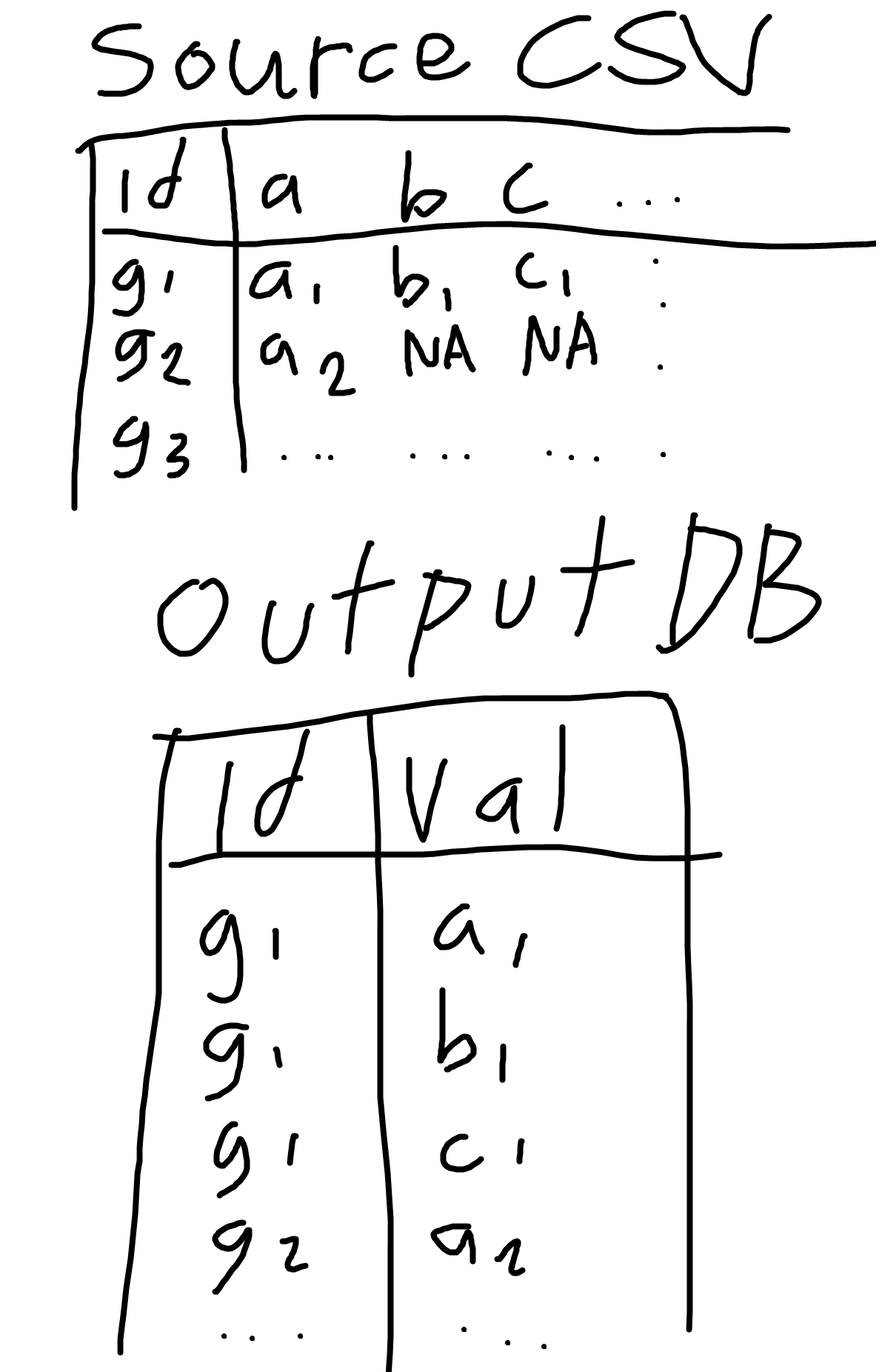When I was tasked with making a new application for our websites, I was given several CSV files with some expectation that these files could basically be just loaded into a database and jumped into production really quickly. If you are using R and Shiny to make a data visualization dashboard, especially if it is read only, this can actually be a reality for you: load those CSVs and just pretend you’re a full featured database. I had to actually create some read write functionality though. This was sort of experimental for me and I’m not that well versed in databases, but I wanted to share my experience
When I started, I chose grails/groovy/hibernate/GORM as a platform to use. This quickly turned into pain when I tried to make a data importer using grails also.
Each CSV row from the source file would have to be turned into many different rows in the database because it represented multiple relationships, example:

Initially I made my data importer in grails, and was hardcoding column names knowing full well this was really inflexible. At the same time I was also trying to “iterate” on my database schema, and I’d want to re-import my data to test it out, but it was really really slow. I tried many different approaches to try to speed this up such as cleanUpGorm, StatelessSessions, and other tricks, but it would take 10-20 minutes for imports on a 100KB input file.
What I basically realised is that for bulk data import
-
Using the ORM is really painful for bulk import.
-
If you can pre-process your data so that it is already in the format the database expects, then you can use the CSV COPY command which is very fast
-
If you can then abandon the ORM mentality and even ignore it as a convenience factor, then you can embrace my database system itself
Overall, after all this work, it just seemed like ORM treats the database as a danger and something to be heavily abstracted over, but I actually found joy in learning how to treat my database as a first class citizen. Soon I started gaining appreciation of
- using plain SQL queries
- learning about full text search in postgres with ts_query
- learning about triggers to make a “last updated” field get updated automatically
I am pretty happy this way, and although I miss some things like criteria queries which are very powerful, I am happy that I can interact with my database as a friend
At the very least, due to the fact that I now pre-process the data before database loading, I can now import large amounts of data super fast with the CSV COPY command